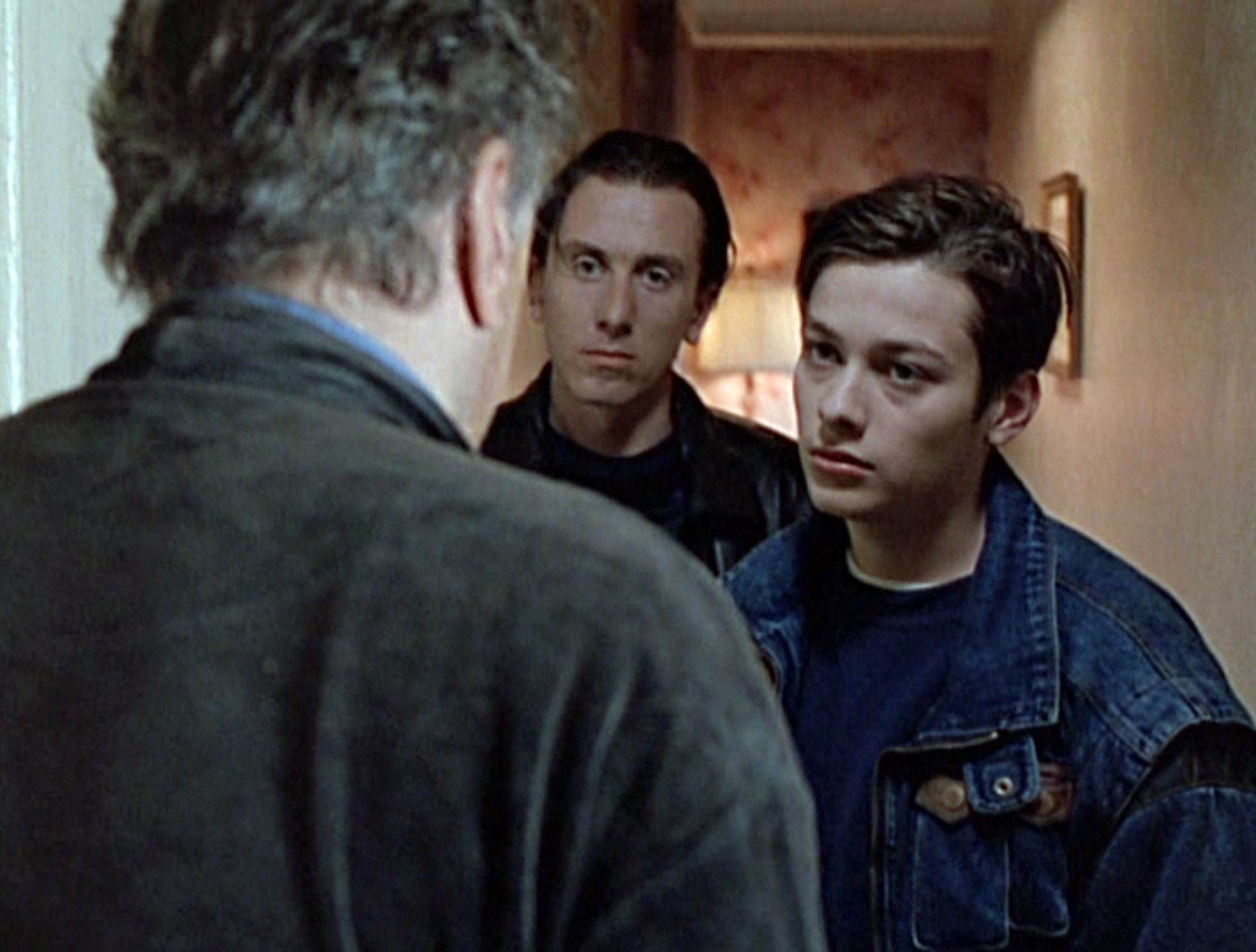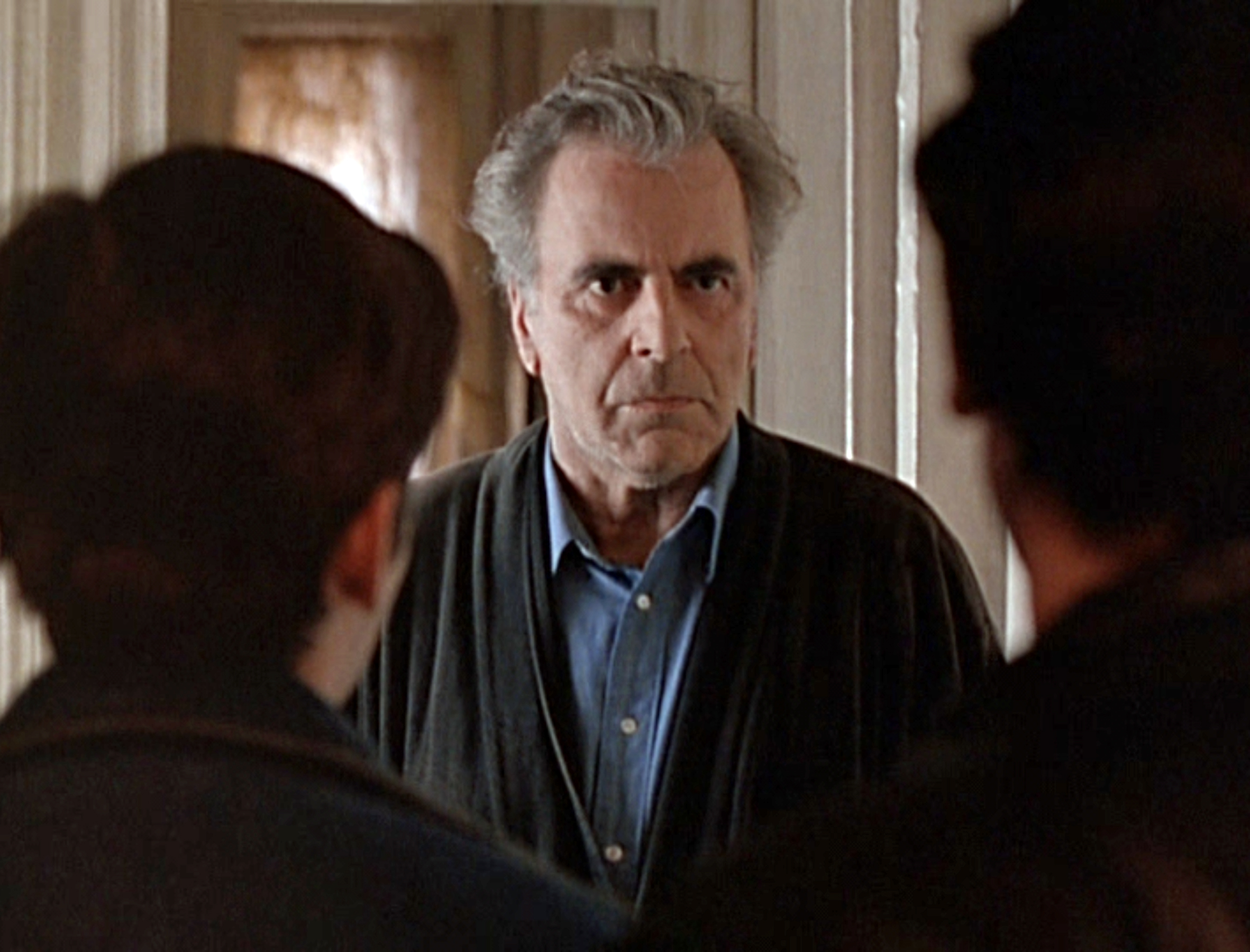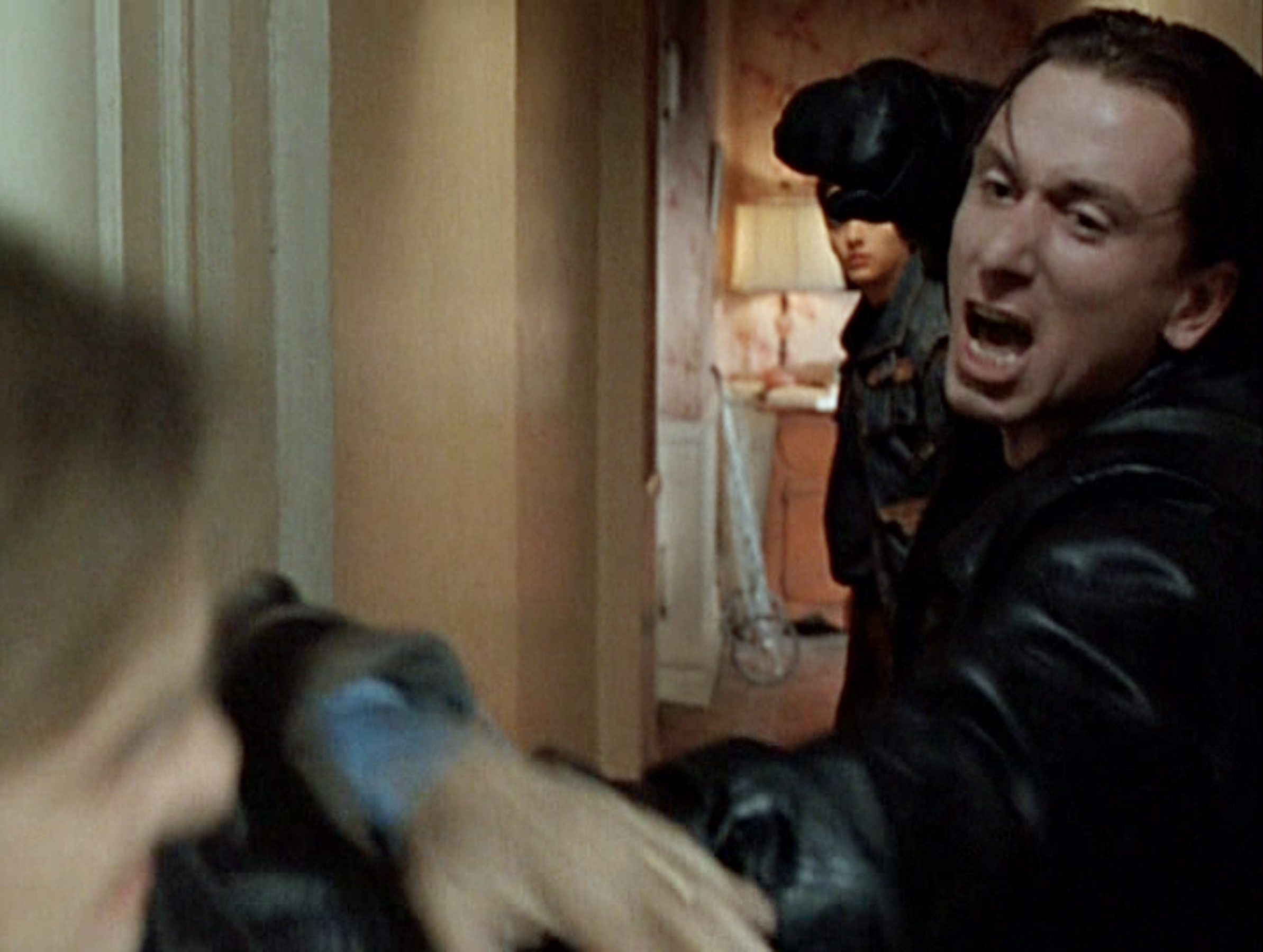A Death in the Family
Little Odessa (1994) is a grim, secretive film. Its characters do little and say less, inhabiting a lawless zone in the Brighton Beach neighborhood of Brooklyn just inches below “normal” society.
In a neighborhood comprised mostly of first- and second-generation Russian-Jewish immigrants, Reuben Shapira (Edward Furlong) is a sixteen-year old who lives with his parents and grandmother. He hasn’t been to school in months, preferring instead to spend his afternoons getting high and catching old westerns at the movie theater or biking up and down the boardwalk.
Reuben (Edward Furlong) whiles away the hours
Reuben’s situation is shitty. He has no ambitions beyond his solitary day-to-day. His brother Josh disappeared years ago when he was young. His mother (Vanessa Redgrave) is slowly dying of cancer, and his father (Maximilian Schell) is avoiding the reality of the situation by spending more and more evenings with his mistress.
Suddenly, in the dead of winter, a bright spot emerges. Josh (Tim Roth) returns. Not that Josh is an especially warm and friendly presence, or even that excited to see Reuben. But it’s a break in Reuben’s monotony of freezing bike rides, stagnation, and illness.
Reuben confronts Josh (Tim Roth) when he learns he’s returned to the neighborhood
Seemingly numb to everything around him, Josh is a hardened criminal who gave up the luxury of emotion years ago. After having left the neighborhood under mysterious and violent circumstances years ago, he’s back in town to do a quick job, a hit on a rival gangster who’s been cooperating with the authorities. No one besides Reuben is supposed to know that Josh is back. If certain people in the Brighton Beach criminal circle know that Josh has returned to the neighborhood, his days are numbered. But when he learns that his mother’s dying, Josh decides to delay his departure in order to confront his father, who is still angry about the path in life Josh has chosen, and to try and make up for lost time with his kid brother.
Josh conducting business
Josh returns home to confront his father (Maximilian Schell)
Finding peace with his terminally ill mother (Vanessa Redgrave)
James Grey does not make happy movies. Besides contemplating the mystery of how this unknown director managed to cast his debut feature with two internationally renowned acting veterans (Redgrave and Schell) and two of the hottest lead actors of the day (Roth and Furlong) is how a then-25-year-old filmmaker could have developed such a bleak and mature outlook on the nature of humanity and family legacy. His subsequent films—The Yards (2000), We Own the Night (2007), and Two Lovers (2008)—all feature characters on either side of the law who are undone more by their conflicting emotions and family obligations than their lawless vocations.
Although it is set in the criminal underworld, Little Odessa depicts actual illegal dealings in a vague and understated way. There are no joyous Goodfellas-style scenes of scams being run or drugs being sold; we see only the occasional murder which is dealt with in a very matter-of-fact fashion.
What’s much more important in the film is Josh’s original decision to turn to the underworld in the first place—in doing so, he turned his back on his father, his family, and the law-abiding side of his Russian community. Josh’s father wonders where he went wrong with his sons, whom he raised to appreciate music, literature, and hard work, and be devout to their Jewish faith. We see the consequences of Josh’s decision—his perpetual wandering, his coldness, his hopelessness; but we also see the consequences of his father’s decisions in life, one supposedly of integrity and nobility: poverty, futility, and cowardice. There are no judgments in the film about which is the better way to live. Reuben, coming to the age where he must decide which path he'll choose, is equally numb to both options.
Unlike most “coming home” films, Josh has no plans to settle back in Brighton Beach, mend his ways, or obtain closure. Aside from a few moments of explosive violence between him and his father, there’s an icy calm that runs through the film, a measured emotional range that has become distinctive of Grey’s films. In the hands of lesser actors a film this subtle wouldn’t come off, it would seem wooden and overly-artificial. But Furlong’s deft ability at displaying a faux-hard teenage exterior while betraying an inner lostness, and Roth’s thousand-yard stare that conveys both menace and resignation, elevate this film to a level of grace that is rarely achieved (or desired) in a crime film.
We begin to understand that things are bad for the Shapira family not because of the recent strain they’ve experienced, but because of the way that they’ve been for a long time, since the family emigrated to the United States and even long before that. Reuben’s family was borne from a legacy of sadness, one that is seemingly eternal and is accepted as birthright just as much as their faith. The dark, lingering chill in Little Odessa is the knowledge that nothing will ever change for the better.
Little Odessa is available online for rent via streaming from YouTube, Vudu, Apple, and Google Play among others, and is also available on DVD. Subscribe to Sleeping All Day.













